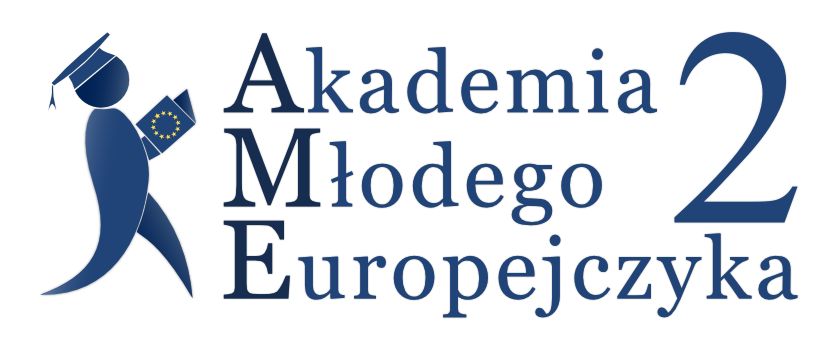
Academy of Young European 2 is a project in the field of informal education implemented by PECSA from September 2016 to August 2018 and co-financed by the European Union under the Erasmus + Program (Jean Monnet Activities). This project is filling the gap in the access to the knowledge on the processes of European integration among the high school pupils in small towns and villages in Poland. The knowledge provided to young people from underdeveloped areas increases their chances for entering into adult life as well prepares their peers in large cities. Open form, innovative teaching methods and up to date knowledge are the key elements for successful access to our target group of young people and teachers from secondary schools in underdeveloped regions of the country.
The main aim of the project was to increase the knowledge on and awareness of European integration among high school pupils.
Project activities:
- Preparation of a teachers’ handbook (printed version and e-book): “The European Union: opportunities and challenges”, eds. E. Latoszek, M. Proczek, A. Szczerba-Zawada, A. Masłoń-Oracz, K. Zajączkowski, Wydawnictwo CeDeWu, Warszawa 2018.
Table of contents of the book and titles of multimedia presentations corresponding to the book chapters:- How Europe joined - the genesis of European integration
- Solidarity and peace as a foundation for integration of European States: the rationale for the creation of the EU
- Who, what, how? About the actors of European integration
- Human rights protection in the EU
- Access to documents of the Council of the European Union
- Working together - the EU as global partner
- Migration and integration: in quest of solution
- The role of the European Union budget in financing the European integration process
- If not the euro then what?
- Freedom of movement of goods on the European Union internal market. Common EU trade policy
- Young entrepreneurs in the EU
- Tangible result of European solidarity - European Union funds
- Innovations - what are they and what is their role? An example of the European Union
- The European Union as an actor in the Mediterranean region
- Brexit, and beyond. Current challenges and future prospects of European (de)integration
- Lectures in selected high schools in Poland
The lectures allowed for direct contact between young people, teachers and experts in the field of European integration. It created a bridge between theoretical knowledge and practical experience and allowed to transfer the knowledge on European studies to pupils and students from peripheral areas, away from academic centers. The subject matter of the lectures was varied and referred to the scope of the book “The European Union: opportunities and challenges”. Titles of lectures:
- Solidarity and peace as a foundation for integration of European States: the rationale for the creation of the EU
- Who, what, how – the actors of European integration
- Human rights protection in the EU
- Young entrepreneurs in the EU
- If not the euro then what?
- Working together - the EU as global partner
- Migration and integration: in quest of solution
- Promotion of European studies and European integration among high school pupils and students during the open days of the Warsaw School of Economics in 2017. This activity aimed at increasing the interest in European integration among participants in the future and at promotion of the project and maximising of its results.

